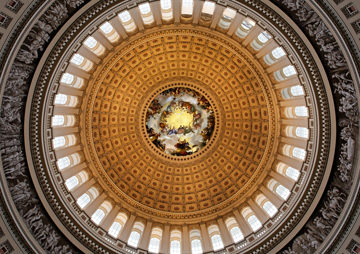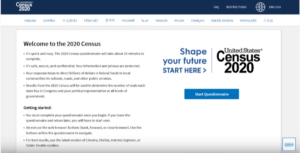NSA Reform Blocked by Paranoid Republican Senators
“God forbid we wake up tomorrow and [Islamic State] is in the United States,” Sen. Marco Rubio said as the USA Freedom Act, considered a "gift to terrorists" by critics, was rejected by the U.S. Senate on Tuesday. Katherine Welles / Shutterstock.com
Katherine Welles / Shutterstock.com
“God forbid we wake up tomorrow and [Islamic State] is in the United States,” Sen. Marco Rubio said as the USA Freedom Act, considered a “gift to terrorists” by critics, was rejected by the U.S. Senate on Tuesday. Despite the fact that the mass collection of Americans’ phone data that the bill attempted to restrict has likely not prevented a single terrorist attack, somehow terrorism is still being used as a justification for the National Security Agency’s violation of U.S. citizens’ privacy rights.
Anyways, as privacy advocates have pointed out, the bill was already a sad specter of the much-needed reform it once promised to be.
The Guardian:
Nearly 18 months after Edward Snowden’s disclosures upended the secret world of US surveillance, the US Senate has rejected the most politically viable effort to rein in the National Security Agency in almost four decades.
The USA Freedom Act, a bill introduced last year that sought to end the NSA’s ongoing daily collection of practically all US phone data, failed to reach a 60-vote threshold to cut off debate and move to passage…It was the denouement to over a year’s worth of political drama, characterized by shifting alliances and a reduction in ambitions for constraining the NSA, even in a post-Snowden Congress…The White House signaled its “strong support” for the bill on Monday. But that support came only after administration officials substantially weakened privacy protections and transparency additions in its House counterpart, all after a key House committee approved it.
Both the administration and the intelligence agencies fear that the defeat of the USA Freedom Act will result in the House declining to reauthorize broader domestic surveillance powers for the NSA and the FBI next year. The NSA and its allies accordingly opted to back the bill, despite having publicly expressed their reservations…While tech companies and most civil libertarian groups back the Senate version of the USA Freedom Act, few privacy advocates believe it would decisively move the US out of the era of dragnet surveillance. Only the domestic phone records database would be jettisoned, and even then the NSA would be able to acquire from telcos thousands of call records based on a single court order.
—Posted by Natasha Hakimi Zapata
Your support matters…Independent journalism is under threat and overshadowed by heavily funded mainstream media.
You can help level the playing field. Become a member.
Your tax-deductible contribution keeps us digging beneath the headlines to give you thought-provoking, investigative reporting and analysis that unearths what's really happening- without compromise.
Give today to support our courageous, independent journalists.




You need to be a supporter to comment.
There are currently no responses to this article.
Be the first to respond.